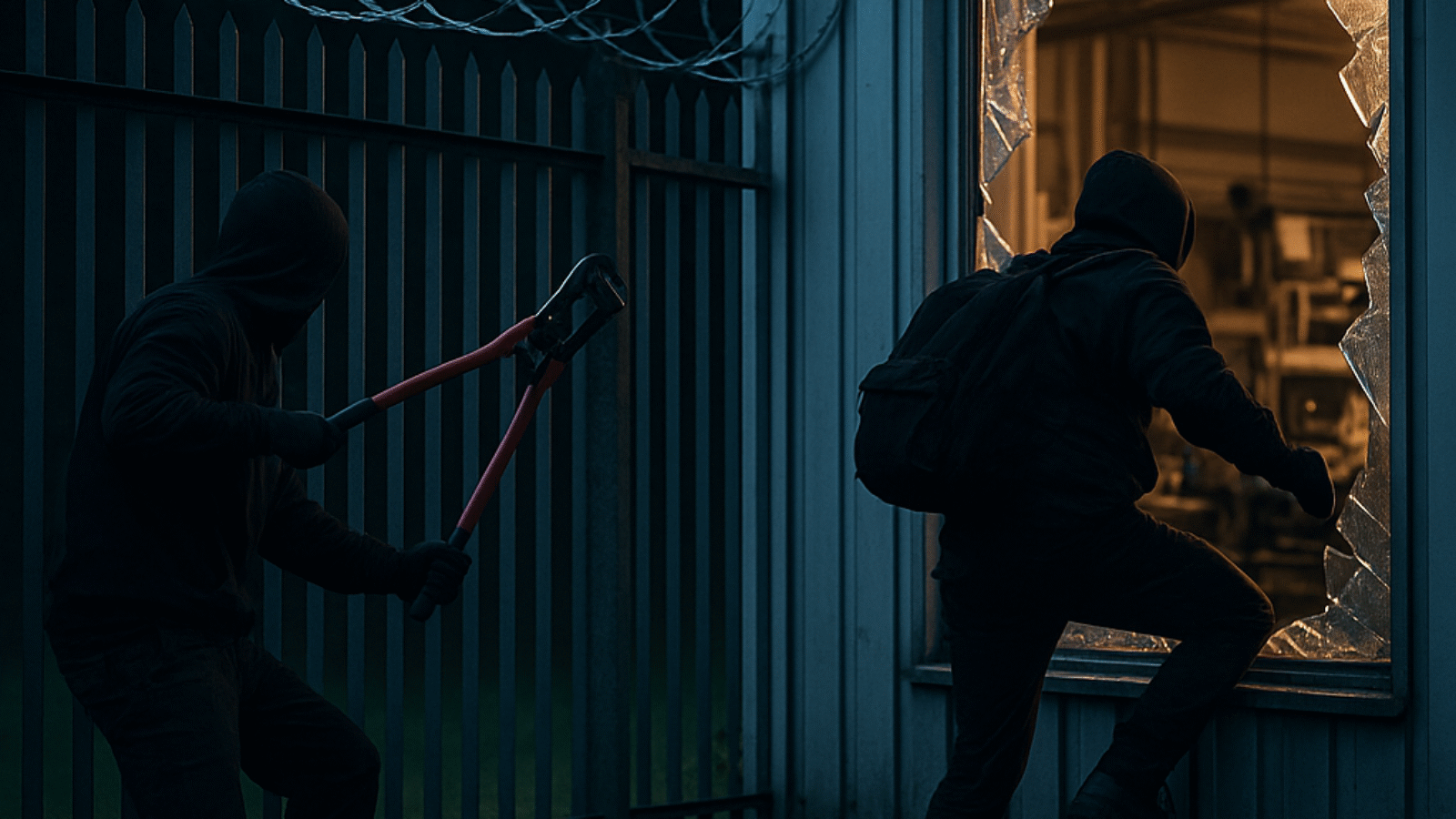Introduction: Two incidents, one lesson
As two attacks on UK defence sites reach court following 2 incidents in 2024, the first In Sandwich, Kent (Discovery Park), activists repeatedly blocked and breached access to the Instro Precision site, covering buildings with red paint and obstructing entrances – one of several actions in 2024 that shut the site down and led to arrests.
Separately, near Bristol, five defendants appeared in court over an alleged break-in at Elbit Systems UK following an August 2024 incident; they faced charges including aggravated burglary, criminal damage and violent disorder.
Different locations, similar pattern: determined intruders exploited gaps between physical barriers, CCTV, and human response times. The shared takeaway is simple – traditional measures alone are no longer enough.
The problem exposed
Even “highly secure” facilities can be infiltrated if detection is late. Fences can be cut or climbed; cameras may be unmonitored at the critical moment; patrols can’t be everywhere at once. The Kent and Bristol cases illustrate that delayed detection = delayed response, which creates the window for damage or disruption.
What is PIDS and why it changes the game?
Perimeter Intrusion Detection Systems (PIDS) provide real-time alerts at (or before) the perimeter -detecting the act of intrusion rather than documenting it after the fact. Core modalities include:
- Fence-mounted sensors: detect cutting, climbing or lifting.
- Buried/ground sensors: pick up footsteps, digging or vehicles.
- Microwave/radar barriers: create invisible detection corridors.
- Vibration/acoustic sensors: recognise tampering at walls, gates and roofs.
Early, verified alerts compress the detection-to-response interval from minutes to seconds – often the difference between “attempted” and “successful” breach.
Where the UK risk is highest?
Targets include defence & aerospace, energy & utilities, data centres, pharma/biotech, transport/airports and high-value logistics – sites where the financial, operational and reputational impact of a breach is severe (downtime, safety risks, regulatory exposure, lost client confidence). Incidents like Kent and Bristol show these risks are current, not theoretical.
Layered detection: how the incidents could have unfolded differently?
Had a comprehensive PIDS layer been in place:
- Fence sensors would flag the first cut/climb attempt.
- Microwave/radar zones would raise alarms as intruders moved between barriers.
- Integrated CCTV analytics would auto-verify the alarmed zone, pushing actionable clips to operators.
- SOP playbooks would trigger in seconds (lights, tannoy warnings, drone or patrol dispatch, blue-light escalation).
Instead of discovering a breach, teams are intercepting one.
Sysco Tech: PIDS done right
We design and deliver standards-aligned PIDS for demanding UK environments:
- EcoPoint Perimeter Sensors – precise detection, tuned for low false-alarm rates.
- FlexLine Security Solutions – adaptable to complex geometries, mixed terrain and legacy fences.
- SP3D Sensor System – 3D perimeter protection for critical infrastructure with zone-level analytics.
Every deployment is site-engineered (terrain, fence type, nuisance sources, wildlife patterns, EM environment) and integrates with your VMS/PSIM, access control and incident-response procedures.
Implementation blueprint (fast, practical, defensible)
- Site risk survey → map threat vectors, fence typologies and likely attack paths.
- Sensor-terrain matching → select the right mix (fence, buried, microwave/radar).
- Zone design & SOPs → align alerts with response steps and service-level targets.
- Integration → VMS linking for auto-verification; alarm rationalisation to reduce operator load.
- Testing & drills → Red-team exercises to validate detection/response times.
- Optimisation → Seasonal retuning, firmware updates, periodic response audits.
Conclusion: Act before the next headline
The Kent disruptions and the Bristol court case underline a UK-wide reality: motivated actors can and will probe your perimeter. The solution is proactive, layered detection that turns seconds into security.
Upgrade to PIDS to protect people, assets and operations – before an incident forces the issue.
Book a consultation with Sysco Tech to assess your perimeter and design a PIDS layer that fits your site and risk profile.




Add a Comment